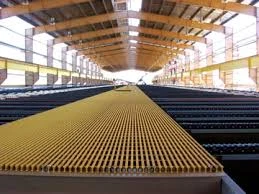
-
 Afrikaans
Afrikaans -
 Albanian
Albanian -
 Amharic
Amharic -
 Arabic
Arabic -
 Armenian
Armenian -
 Azerbaijani
Azerbaijani -
 Basque
Basque -
 Belarusian
Belarusian -
 Bengali
Bengali -
 Bosnian
Bosnian -
 Bulgarian
Bulgarian -
 Catalan
Catalan -
 Cebuano
Cebuano -
 China
China -
 China (Taiwan)
China (Taiwan) -
 Corsican
Corsican -
 Croatian
Croatian -
 Czech
Czech -
 Danish
Danish -
 Dutch
Dutch -
 English
English -
 Esperanto
Esperanto -
 Estonian
Estonian -
 Finnish
Finnish -
 French
French -
 Frisian
Frisian -
 Galician
Galician -
 Georgian
Georgian -
 German
German -
 Greek
Greek -
 Gujarati
Gujarati -
 Haitian Creole
Haitian Creole -
 hausa
hausa -
 hawaiian
hawaiian -
 Hebrew
Hebrew -
 Hindi
Hindi -
 Miao
Miao -
 Hungarian
Hungarian -
 Icelandic
Icelandic -
 igbo
igbo -
 Indonesian
Indonesian -
 irish
irish -
 Italian
Italian -
 Japanese
Japanese -
 Javanese
Javanese -
 Kannada
Kannada -
 kazakh
kazakh -
 Khmer
Khmer -
 Rwandese
Rwandese -
 Korean
Korean -
 Kurdish
Kurdish -
 Kyrgyz
Kyrgyz -
 Lao
Lao -
 Latin
Latin -
 Latvian
Latvian -
 Lithuanian
Lithuanian -
 Luxembourgish
Luxembourgish -
 Macedonian
Macedonian -
 Malgashi
Malgashi -
 Malay
Malay -
 Malayalam
Malayalam -
 Maltese
Maltese -
 Maori
Maori -
 Marathi
Marathi -
 Mongolian
Mongolian -
 Myanmar
Myanmar -
 Nepali
Nepali -
 Norwegian
Norwegian -
 Norwegian
Norwegian -
 Occitan
Occitan -
 Pashto
Pashto -
 Persian
Persian -
 Polish
Polish -
 Portuguese
Portuguese -
 Punjabi
Punjabi -
 Romanian
Romanian -
 Russian
Russian -
 Samoan
Samoan -
 Scottish Gaelic
Scottish Gaelic -
 Serbian
Serbian -
 Sesotho
Sesotho -
 Shona
Shona -
 Sindhi
Sindhi -
 Sinhala
Sinhala -
 Slovak
Slovak -
 Slovenian
Slovenian -
 Somali
Somali -
 Spanish
Spanish -
 Sundanese
Sundanese -
 Swahili
Swahili -
 Swedish
Swedish -
 Tagalog
Tagalog -
 Tajik
Tajik -
 Tamil
Tamil -
 Tatar
Tatar -
 Telugu
Telugu -
 Thai
Thai -
 Turkish
Turkish -
 Turkmen
Turkmen -
 Ukrainian
Ukrainian -
 Urdu
Urdu -
 Uighur
Uighur -
 Uzbek
Uzbek -
 Vietnamese
Vietnamese -
 Welsh
Welsh -
 Bantu
Bantu -
 Yiddish
Yiddish -
 Yoruba
Yoruba -
 Zulu
Zulu
fiberglass fuel tank
The Advantages of Fiberglass Fuel Tanks
In the modern era, fuel storage is a critical aspect of various industries, including marine, automotive, and agricultural sectors. Among the numerous materials used for fuel tanks, fiberglass stands out as a versatile and effective choice. Fiberglass fuel tanks offer numerous advantages that make them increasingly popular. This article discusses the characteristics, benefits, and applications of fiberglass fuel tanks.
What is Fiberglass?
Fiberglass, or glass-reinforced plastic (GRP), is a composite material made from plastic reinforced by fine glass fibers. The combination of lightweight plastic and the strength of glass fibers results in a material that is durable, corrosion-resistant, and lightweight. These qualities make fiberglass an ideal choice for constructing fuel tanks.
Corrosion Resistance
One of the most significant advantages of fiberglass fuel tanks is their resistance to corrosion. Traditional metal tanks, especially those made from steel, are susceptible to rust and corrosion over time, primarily when exposed to moisture and various fuel types. Conversely, fiberglass is inherently resistant to both chemical and environmental degradation. This property extends the tank's lifespan, ensuring it maintains its structural integrity even when subjected to harsh conditions.
Lightweight Design
Fiberglass fuel tanks are considerably lighter than their metal counterparts. This lightweight characteristic provides significant benefits, particularly in applications where weight may influence performance, such as in marine vessels and aircraft. The reduced weight can lead to improved fuel efficiency, enhanced handling, and greater overall performance, as less energy is required for transportation.
Versatility in Design
Fiberglass can be molded into various shapes and sizes, which allows for more versatile tank designs. Manufacturers can tailor the dimensions to fit specific requirements or constraints in a vehicle or vessel. This flexibility means that fiberglass tanks can be produced in a range of capacities, making them suitable for various applications, from small recreational boats to large industrial equipment.
fiberglass fuel tank

Impermeability
Another noteworthy feature of fiberglass fuel tanks is their impermeability. Unlike traditional materials, fiberglass does not allow fuels to permeate through its walls. This quality not only minimizes fuel loss but also helps prevent environmental contamination—a crucial factor in today's eco-conscious landscape. By containing leaks and ensuring that fuel remains secured, fiberglass tanks contribute to safer and cleaner fuel storage.
Temperature Resistance
Fiberglass is well-suited for extreme temperature conditions. Whether it is the intense heat found in engine compartments or the freezing temperatures experienced during winter months, fiberglass maintains its structural integrity without warping or cracking. This thermal stability is particularly advantageous in maintaining the performance of the fuel system, regardless of external conditions.
Cost-Effectiveness
Although the initial investment for fiberglass tanks may be higher than that for metal tanks, the long-term savings often outweigh the upfront costs. The durability and lifespan of fiberglass mean less frequent replacements and repairs, contributing to lower overall expenses. Additionally, the reduced maintenance required for fiberglass tanks translates into further cost savings.
Applications
The applications of fiberglass fuel tanks are diverse, ranging from offshore oil rigs and commercial shipping vessels to recreational boats and motor homes. Their resistance to corrosion, lightweight nature, and customizable designs make them ideal for any fuel storage needs. Additionally, the agricultural sector benefits from fiberglass tanks, where fuel storage requires resilience against various elements.
Conclusion
In conclusion, fiberglass fuel tanks represent a modern solution to the challenges of fuel storage across various industries. Their corrosion resistance, lightweight design, versatility, impermeability, temperature resistance, and long-term cost-effectiveness make them a compelling option for both manufacturers and end-users alike. As the demand for efficient and reliable fuel storage continues to grow, fiberglass tanks are likely to play an even more significant role in the future of fuel management.









